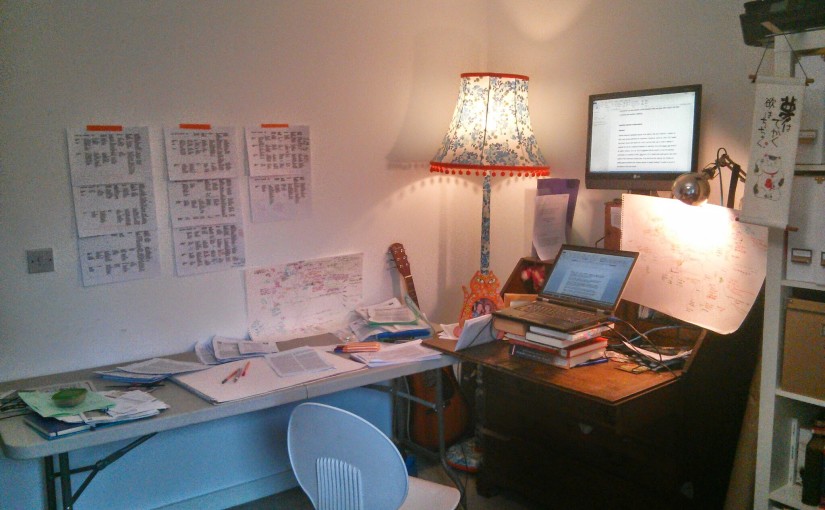I recently attended a seminar about screen addiction led by Dr Aric Sigman. I was intrigued by the information about how excessive recreational screen-use has a detrimental impact on people, and how each new generation seems to be increasingly glued to screens. I weighed this up against the research I have looked at which aims to develop touch-screen based interventions, some of which act as cognitive prostheses for people with dementia. I wondered where we can draw a line, however arbitrary, between the benefits and the costs of the screens we surround ourselves with.
Dr Sigman presented those assembled with some potentially harrowing statistics: the average child will have spent one year of their life looking at screens by the age of seven. At the current rate of screen use, the average eighty year old will likely have spent two decades looking at screens. We were shown studies with people who play excessive sounding amounts of online games: about seven hours each day. Unsurprisingly perhaps, this apparently leads to physically observable changes in the structure of the brain. I wondered about how one might find a control group for this: what other activities would be similar, and could people stay motivated to do for 8 hours a day? Race driving, perhaps? Motorcycle racing might not be sufficiently sedentary. Is it possible that doing any one thing for eight hours a day during waking hours is likely to be problematic for people?
In the past, children who watched too much television were called square-eyed, and this was framed negatively. Roald Dahl caricatured the phenomenon six decades ago in Charlie And The Chocolate Factory with his character Mike Teavee. The Mike of the book was a smart but short-tempered boy who was addicted to watching television, enjoyed watching TV shows about gangsters, and carried eighteen guns which he pretended to fire when watching TV. In the seventies film (which on a recent re-watch was astonishingly disturbing in places), he watched cowboy films. In the noughties version, the character had evolved to enjoy first-person shooter games in addition to watching television. It seems that the profile of this child is nothing new, but what is it that people find so objectionable about it? Perhaps it is related to the idea of a perfectly good brain going to waste.
Gaming can have significant impacts on cognition. Tetris apparently invalidated some cognitive tests when it took the world by storm in the nineties, since large sections of the population got a lot of practice at rotating two-dimensional shapes in their minds. This meant that the tests had to be redesigned. Tetris is also potentially of benefit to people in the aftermath of traumatic events, reducing the number of flashbacks they experience. Tetris might appeal to researchers because of the relative simplicity of the game: the possible benefits of modern, more complex games might be harder to evaluate as it would be difficult to determine which aspects of the game had caused the effects.
My literature review suggests that there are various potential benefits of touch-screen based interventions for people with dementia and their carers. The Computer Interactive Reminiscence and Conversation Aid (CIRCA) project set up as a result of research conducted at the University of Dundee by Norman Alm and colleagues is a project that aims to offer a cognitive prosthesis for people whose working memories might be compromised, and helps them to become more equal participants in conversations by providing a source of topics to discuss via visual and auditory media. Off-shoots of the project include “Living in the Moment” games and ExPress Play, which allows people to play music regardless of their level of musical prowess. Research suggests that these activities are enjoyable and of benefit not only to the people with dementia but also to the people around them as new memories can come to light, conversations can become more natural, and the focus of shared activities can shift towards creativity.
Other studies have been conducted with touch screen art software, a range of iPad apps, applications that integrate with the household and hand-held devices. The studies seem to consistently show that people with early to mid-stage dementias are able to learn to use touch-screens, and that when certain design aspects are taken into consideration, they and the people around them can find them to be of benefit.
Screen use is becoming increasingly pervasive, as we all tend to carry arrays of portable screens around with us. Some people seem to find them addictive, but the media that can be delivered via screens also has the power to help. Perhaps it would be useful to think about the ways in which we use screens, audit our own screen use and think about ways to optimise it in terms of potential benefit to ourselves and others.

